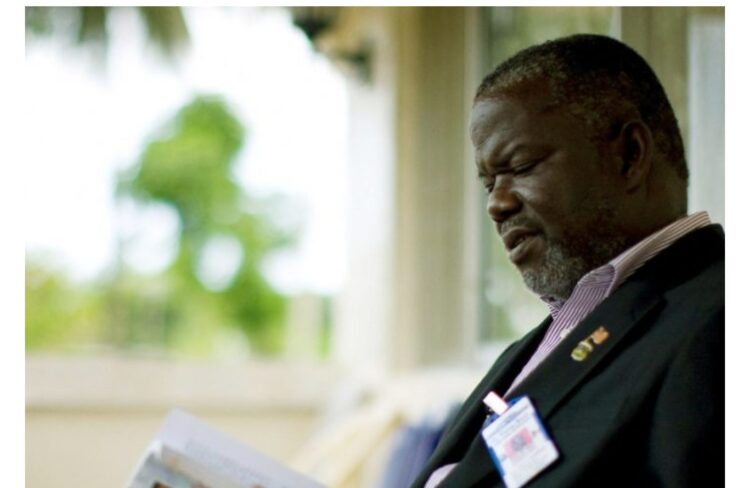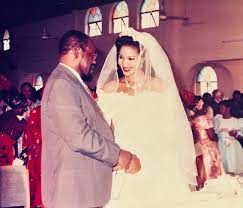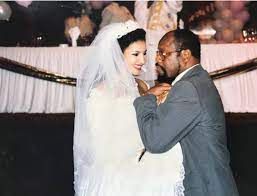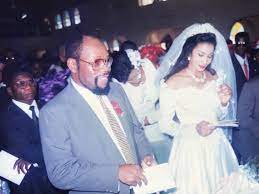By Owei Lakemfa
THE last time I was in Chad was in 2014. In its capital, N’Djamena, I couldn’t resist the feeling that I was in a big rural village. Many of the side streets I went, were either un-tarred or in need of some repair and in some cases, water logged. Desperation was written on many faces as poverty played widely popular football marches on the streets.
One day, one of my hosts came to pick me. Not far from the hotel gates, he pointed at what looked like a road tunnel and asked me if I knew what it was. He claimed it is a tunnel built by a Western power which can take its citizens, diplomats military directly to the airport in case of fighting in the streets of N’Djamena. The capital city also seemed like one big garrison. Shabbily dressed soldiers were a common sight. To be sure, many of them looked hungry.
More tragically was the fact that many people I came across seemed resigned to fate as their ballots don’t count. Another tragedy was that a country whose population was almost equally shared by Christianity and Islam, was being projected as a society with a mono religion. One of my hosts was nostalgic about the strides some parts of the country were making before strife became prevalent. I got the feeling of a country held hostage by warlords and bandits who do not care for today or tomorrow.
My visit coincided with the hurried return of Chadian troops fleeing from the neigbouring Central African Republic, CAR, where the Deby regime had played an unclear role. The CAR herder population which consisted about 10 per cent of the populace claimed it was marginalised and created a broad opposition rebel group called Seleka or Union. In 2012, Seleka raced to take over the country. Then CAR President Francois Bozize asked his brother President, Idriss Deby of Chad for help and the latter on December 18, 2012, sent 2,000 troops to check the rebel advance.
However, it seemed both the Seleka rebels and Chadian troops avoided clashes. Even when the rebels took the town of Sibut which had Chadian troops, they did so without firing a shot. The Chadian troops had rather than fight, retreated to Damara, the last city standing between the rebels and the capital. After this, the regional Economic Community of Central African States, ECCAS, brought in a handful of peacekeepers from the two Congo Republics, Angola, Cameroun and Gabon. They were supported by some South African troops. But this force could not save Bangui which was seized on March 24, 2013.
The Seleka rebels then unleashed terror on the populace, torturing, executing and raping them. In reaction, the population established self-defence forces which became known as the Anti-Balaka or the ‘Invisible’. They declared December 5, 2013 as “A Day That Will Define Central African Republic” and using some guns and machetes, went after the Seleka forces and their perceived supporters. To prevent further massacres, the Seleka government and forces were on January 27, 2014, escorted out of Bangui by Chadian peacekeepers.
Then a seemingly bizarre incident happened on March 29, 2014. Chadian troops entered Bangui’s PK12 district market and indiscriminately opened fire on unarmed civilians, killing 30 and injuring 300. The angry CAR populace rose to throw out the Chadian troops which was why they fled to N’Djamena.
The reasons why the Deby troops intervened in the CAR remains unclear: was it altruistic, based on religious considerations, as dictated by Deby’s bosses in Paris or some private agenda. That is why those singing the praises of Deby for intervening against the Boko Haram terrorists and their allies in Mali, should pause to ask: what was his primary interest?
Basically, Deby has been a tool of the French which had kept him in power for three decades. He had enlisted in the army in the 1970s and in 1978, joined the rebel forces of Hissen Habre when he returned from training in France. When Habre overthrew the Goukouni Oueddei, government in 1982, he made Deby the Commander-in-Chief of the Chadian Armed Forces. Together, they carried out one of the bloodiest repression, even by the standards of violence-prone Chad. This included some 40,000 politically motivated murders and 200,000 cases of torture in the eight years. For his part in these crimes against humanity, Habre was sentenced to life in prison by an African Union-backed tribunal while Deby remained Chadian President receiving the same backing from the United States and France as Habre had received.
France which has 5,000 soldiers in Chad, helped Deby beat back rebel forces which reached the capital in 2006, 2008 and 2019 before the April 11, 2021 incursions by the Front for Change and Concord in Chad, FACT, led by former child soldier, Mahamat Mahadi Ali. FACT had planned its invasion to coincide with the date of the elections. Deby had in 2005, removed the constitutional terms, and for this year’s elections, ensured victory by visiting violence on opposition candidates.
In one of the most bizarre cases, at about 5.00am on February 28, 2021, his forces attacked the house of opposition figure Yaya Dillo who had refused to back-down from challenging Deby at the polls. They killed Dillo’s mother and son and injured at least five other family members. With the coast clear, Deby reportedly visited the frontline to assess the invasion of the FACT forces. He was reported to have been shot by the advancing rebels.
On Monday, April 18, the election ‘results’ were out and the Chadian Field Marshall had won almost 80 per-cent of the votes. The next morning he was pronounced dead. Rather than let the election results remain and allow his running mate to replace him, or allow the Speaker of Parliament to run an interim government as is constitutionally provided, the Deby group executed a coup, dissolved the executive and parliament, annulled the elections and imposed his son, Mahamat, who was seven years when Deby became President. The new coup leader from that age of seven, had become a general within 19 years.
This was the type of ‘monarchical’ succession witnessed in Togo in 2005 when President Gnassingbe Eyadema was replaced by his son, Faure, and in Gabon in 2009 when President Omar Bongo was replaced by his son, Ali Bongo Ondimba. Chad’s big neighbour, Nigeria, and its neo-colonial father, France saw nothing wrong in the Chadian coup. They merely said they do not want a power vacuum.
This was how the contemporary military coups in Egypt, Zimbabawe, Sudan and Mali were rationalised. President Deby is gone, leaving no legacy of development, peoples’ welfare, unity, security, respect for human rights or democracy. Just one more warlord in Chad’s unending wars.




